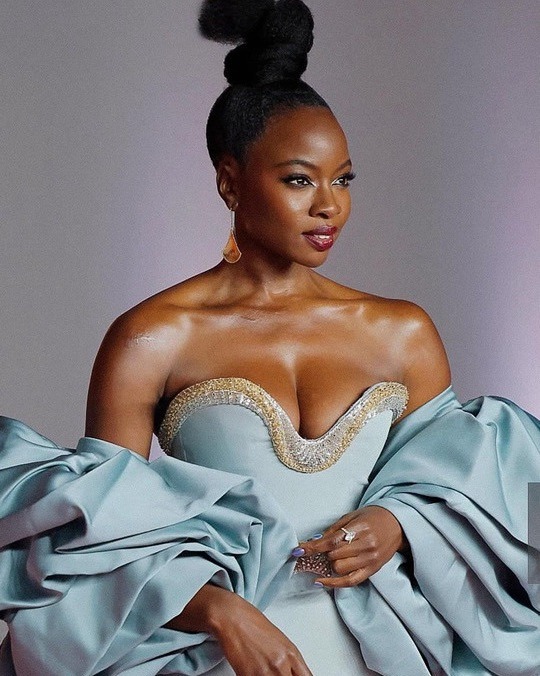#playwright
Explore tagged Tumblr posts
Text
How can I become a writer?
Write.
But I don't know where to start.
Write.
But I'm worried.
WRITE.
What if nobody likes it?
W R I T E
What if it's not very good?
Write. Write. WRITE. WRITE.
W
R
I
T
E
Write
Write. Write. Write. Write. Write. Write.
Write.
Write
Write
Write
Write
Write
Write
Write
Write
W R I T E
Write write write
Write
Write
#writer things#writer stuff#writing community#creative writing#writeblr#playwright#playwriting#screenplay#short story#writing#writers on tumblr#writers and poets#writing tools#writerscommunity#writing advice#writing asks
9K notes
·
View notes
Text
I saw the new stage adaptation of FRANKENSTEIN at the Shakespeare Theatre Company in DC last night! This isn’t a review of the production yet because I’m seeing it again on Saturday and want to wait until then to fully process my thoughts about it, but I did enjoy the show.
That said, it gave me a lot of thoughts about how I personally would adapt the text for a stage retelling if my goal was to give Elizabeth a larger role and greater agency in the story.
I don’t think it’s a spoiler to share that the main thing STC has advertised about this new play is putting Elizabeth front and center as a co-protagonist. If I were to do that in my own version, there are two main problems with this kind of adaptation that I would have to confront:
1. Often, making the “long-suffering wife/girlfriend/fiance” a more major character necessitates spending more time with her feeling lonely or neglected in the domestic sphere. It is not very dynamically interesting to show a character spending most of their time waiting unhappily for the male co-protagonist to do something or give her attention, but in a period piece like this, part of her plight is that she doesn’t have the opportunity to make as many choices as he does.
Even in non-period pieces, we often see this dynamic: Problematic male character gets involved in something that takes his focus away from his home and family, female character is upset that his focus is taken away from home and family. So he gets to do things and she just gets to react to him not doing things. More stage time and more dialogue is not equivalent to more agency.
So I believe the solution to this problem is one of two options. Either she has to have some other interest or passion to occupy her if she’s disillusioned and frustrated with tending solely to the household and the societal limits placed on her. Maybe she dreams of being an author or an astronomer or something, or gets involved with social and political causes.
OR we see her really embracing her domestic role with the same passion the male protagonist has for whatever’s keeping him away from the home. Maybe she is incredible at sewing, loves gardening, is a great cook, has a brilliant eye for interior design, etc. If she has a child, maybe their bond is really strong and she actually enjoys being with them.
Either way, give the character something to live for besides an often-absent and often-disappointing man. We don’t want to believe her entire being revolves around him if we’re making her a co-protagonist.
This leads me to the second major problem I’d have to face:
2. In any troubled fictional relationship, the more unappealing you make the man, that actually reflects worse on the woman. I’m not victim blaming people who are abused— I’m saying that even if a character is abusive, there has to be things about him that the woman in his life connects with or admires about him, or at least did once before things went downhill, or thought she did before he revealed himself to be a fraud or big jerk.
In the book Frankenstein, Victor is a difficult character for most readers to like and sympathize with. If we center a play on his relationship with his fiancé, he will likely come across even worse. If we see her neglected by him, lied to by him, and even endangered by him, we may wonder what’s in it for her at all. And if it’s solely economic security with no personal attachment at all, we have to establish why THIS guy is her best option.
So the solution, for me, would be to create some kind of shared interest that brings the two together, some traits or talents they admire but maybe also resent or feel envious about with regards to one another.
So, all that being said, I think this would be MY pitch for an adaptation of FRANKENSTEIN in which Elizabeth is a protagonist. Spoilers here for the book if you haven’t read it, but not for STC’s play.
* Elizabeth was taken in by the Frankenstein family as a tween. Her mother died and her father decided to abandon her by dumping her on another family. She was present for her mother’s death and it’s haunted her ever since.
* She is fascinated by the question of the human soul: where in the body it’s located, what happens to it after death, when it enters the body after conception, if it can be scientifically isolated and studied, etc. She and young Victor bond over a shared interest in science and questions of life and death. They slowly begin a romantic relationship that begins as a sort of scientific experiment in and of itself.
*Victor is sent off to a fancy school, implied to partly be to separate him and Elizabeth from physical congress after getting caught. Later, he goes on to university. Elizabeth cannot, being a woman, but continues reading and learning as much as she can independently. She also uses her interest in anatomy to become a passionate and talented cook for the Frankenstein family. We see a lot of her cutting and handling raw meat and perhaps there’s a large meat locker as part of the set that we see her coming and going from as she reads Victor’s letters and stuff.
*There are ambiguous hints throughout the play, never confirmed, that Victor’s much younger brother, William, may really be the biological son of Victor and Elizabeth, though they would have only been 13 or so when he was conceived and so he was always raised as a brother. Either way, the themes of fathers abandoning or rejecting their children would be a thing in this play.
*Victor pursues his obsessive interest in reanimating the dead partly for Elizabeth. He wants to make her proud with his great scientific discovery, but he also is partly using techniques that she had thought of merely theoretically. She just does not have access to a lab and funding like he does. He doesn’t tell her about his research because he doesn’t want to let her down if it’s a failure. The resulting creature freaks him out so much that of course he’d never want her to know about it.
*The main action of the play starts largely the night before Victor and Elizabeth’s wedding. In the book, this is where the creature murders Elizabeth the night of the wedding in revenge because Victor won’t build him a wife. Here, when he bursts in to Elizabeth’s room, he tells her his story (largely as he tells it in the book) which is acted out by actors, so the whole meat of the story is being narrated by the Creature to Elizabeth, who is of course startled and concerned but also enthralled.
*After he tells his story, he has a pitch for Elizabeth: he wants HER to be the one to build him a bride. He has Victor’s notes and diagrams and instructions. Victor has already rejected his request, but the Creature believes she would be better at it than he would. He has already set up a lab for Victor and is now offering it to Elizabeth.
* There is already a fresh body available: Justine, Elizabeth’s companion and the family servant, has been executed for killing William, which the Creature actually did. Elizabeth feels like if she can bring back Justine, who was unjustly killed, it would be an act of good, not evil. She’s already lost both her biological and adoptive mothers and has always wished there was a way to bring them back. She claims Justine’s body at the morgue and secretly recreates the process of animation with the Creature as her assistant.
* Just as the final thunderclap sounds, Victor rushes in to the lab. Justine 2.0 begins to blink and stir, and he instantly destroys her, killing her again. He’s terrified by the implications of the Creature breeding with another of his kind. But he’s also secretly jealous and afraid that Elizabeth’s creation was already so much better than his own, while he spent years trying to perfect his craft and never achieved his desired results.
* In vengeance, the Creature murders Elizabeth. Now neither of them will have a bride. He goads Victor to use his science to reanimate Elizabeth. Bring her back and Victor may have a chance of a wife again— or she may choose the Creature instead. Either way, her soul may be Elizabeth’s but may be something new.
* Appalled, Victor holds to his principles and refuses to bring back Elizabeth. He rushes out into the stormy night. The Creature begins to pursue him, then stops at the open door and turns back to look at Elizabeth’s body on the lab table. Will he pursue Victor and continue his revenge across the frozen arctic like in the book, or will “Frankenstein the Monster” take on the role of “Frankenstein the Scientist” and try to reanimate Elizabeth himself? The lights go black in a clap of thunder and lightning and the play ends, leaving the question unanswered.
I don’t know if I’ll ever write this one day, but maybe I will, IDK.
35 notes
·
View notes
Text

How dare they
#authors#creative writing#writing#writers on tumblr#writerscommunity#character versus author#playwriting#playwright
1K notes
·
View notes
Text

#romeo & juliet#romeo and juliet#romeo#juliet#shakespeare#english literature#literature#playwright#playwriting#drama#alternative#aesthetic#dark academia#dark academic aesthetic#dark aesthetic#aestheitcs#dark#art#light acadamia aesthetic#light academia#theatre#threads#instagram
5K notes
·
View notes
Text
RIP Lady Macbeth you would’ve loved hydrogen peroxide
#get it#cause bloodstains#doesn’t matter#classic literature#classic#literature#dark acadamia aesthetic#dark acadamia quotes#dark academia#literature memes#macbeth#lady macbeth#shakespeare#hamlet#othello#william shakespeare#playwright#playwriting#i’m losing my mind
396 notes
·
View notes
Text


Thank you all so much for 1,000 followers! I plan to be more consistent on posting.
Much love,
Mourner ⚰️
#poetry#poetic#spilled thoughts#quotes#love quotes#poem#thoughts#literature#lovers#love poem#forbidden love#ink spilled#spilled ink#spilled poetry#poetry quotes#playwright#eurydice#orpheus#literary quotes#love quote#book quote#please love me#die for love
125 notes
·
View notes
Text

“The first time I ever really spoke to Jackie, I saw her walking along Christopher Street, this bizarre creature with frizzy red hair, a ripped dress, no eyebrows, bee-stung lips. A Puerto Rican queen yelled out, “Girl, I could read you from blocks away!” The other drag queens didn’t really understand Jackie. She wasn’t trying to be a woman; she had this totally individual freaky style … She walked around in ripped stockings and big tears in her dresses with threads hanging off but, in her mind, she thought she was Greta Garbo. She knew she was eccentric, a freak, but in some weird way she visualised herself as Garbo or Marlene Dietrich. She had that combination of trash and glamour, and it made a really big impression on me. A lot of her dresses were from the 30s and 40s, things that she’d pick up from thrift stores for 25 cents, and most of them had big BO stains under the arms, because Miss Curtis was not renowned for her personal hygiene. She wore old lady shoes that she sprayed silver, and her tights were always ripped … nobody else was dressing like this at the time. Jackie was a total innovator. She wasn’t trying to pass as a woman; she developed her extreme style as a direct result of the way she lived. I took that idea from her; my whole attitude towards clothes and make-up and everything changed. Everyone started to deck themselves more and more. But it all started with Jackie, really.”
/ Jayne Country reflecting on the influence of her friend Jackie Curtis in her essential 1995 memoirs Man Enough to Be a Woman, co-written by Rupert Smith /
To paraphrase the Ramones: Jackie Curtis was a punk rocker! The pioneering, visionary and outrageous gender-bending underground actor, playwright, Warhol superstar, amphetamines enthusiast and Max’s Kansas City habitué (19 February 1947 – 15 May 1985) died on this day 40 years ago. Search out the 2004 documentary Superstar in a Housedress. Portrait of Curtis by the late, great Leee Black Childers.
#jackie curtis#underground cinema#underground theatre#underground culture#warhol superstar#superstar in a housedress#walk on the wild side#lgbtqia#lobotomy room#genderfluid#gender bender#queer#lou reed#wayne county and the electric chairs#jayne county#man enough to be a woman#max's kansas city#punk#punk rock#freak diva#off off broadway#playwright#leee black childers
54 notes
·
View notes
Text

Danai Gurira (wearing Gabriela Hearst) and her father at the Grey Goose suite at the US Open
#danai gurira#michonne#the walking dead#black panther#twd cast#okoye#black panther wakanda forever#danai#marvel#playwright#gabriela hearst
138 notes
·
View notes
Text




Happy birthday to the beautiful Danai Gurira❤️
#danai gurira#actress#writer#playwright#the walking dead#michonne grimes#black panther#okoye#mcu#my post
66 notes
·
View notes
Text

Jackie Curtis (John Curtis Holder Jr.) (deceased)
Gender: Male (she/her in drag)
Sexuality: Pansexual
DOB: 19 February 1947
RIP: 15 May 1985
Ethnicity: White - American
Occupation: Drag artist, actor, singer, writer, playwright
Note: While performing in drag on stage and screen, Curtis would typically wear lipstick, glitter, bright red hair, ripped dresses and stockings. Curtis pioneered this combination of camp trashy glamour as a style that inspired many entertainers.
#Jackie Curtis#John Curtis Holder Jr.#John Curtis Holder Jr#lgbt history#pansexual history#pansexuality#lgbt#lgbtq#queerness#femme#male#pansexual#1947#rip#historical#white#drag artist#actor#singer#writer#playwright
81 notes
·
View notes
Text
“We are all in the gutter, but some of us are looking at the stars.”
- Oscar Wilde, Lady Windermere's Fan, 1892
#playwriting#poetry#poetic#playwright#poems#plays#literature#writers and poets#theater#oscar wilde#classic literature#quotations#literary quotes#quotes#book quote#beautiful quote#words#lit
64 notes
·
View notes
Text

Oscar Wilde was full of witticisms until the very end..
#Oscar Wilde#Irish poet#playwright#humour#UK#Dublin#quotation#Victorian era#English literature#novelist#Ireland#controversy#famous quotes#experience#lesson#1854 - 1900
334 notes
·
View notes
Text


Beautiful Marsha portrait published in the Spanish magazine Garbo, 1987.
Although this gorgeous photo of Marsha was published in 1987, could this photo belong to this photoshot?
#Marsha Hunt#1987 Marsha#1985 Marsha#Marsha model#Garbo#1987 Garbo#Spanish press#actress#stage actress#musical actress#playwright#activist#writer#author#muse
46 notes
·
View notes
Text

53 notes
·
View notes
Text


Robert Sean Leonard as “Dan Wilson” in And the Air Didn’t Answer at Playwrights Horizon’s Young Playwrights Festival (1988)
This production was just a few weeks before RSL headed out to film Dead Poet’s Society!
(This find made me feel like a damn historian…)
#robert sean leonard#rsl#acting#actor#1988#playwright#playwriting#stage play#stage actor#house md#james wilson#dead poets society#neil perry#theatre#in the gloaming#long days journey into night#the invention of love#candida#arcadia#my best friend is a vampire#boys next door#swing kids#tape 2001
52 notes
·
View notes